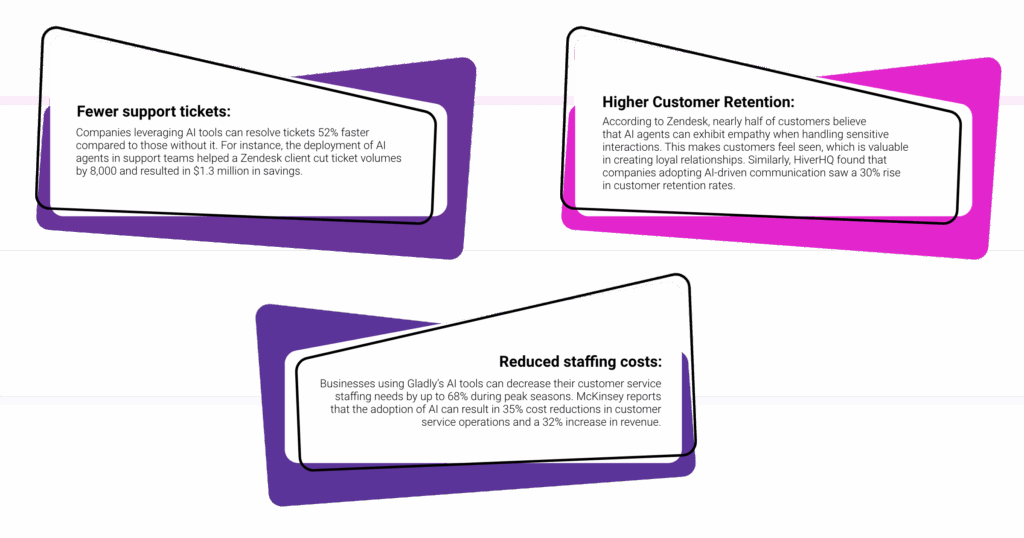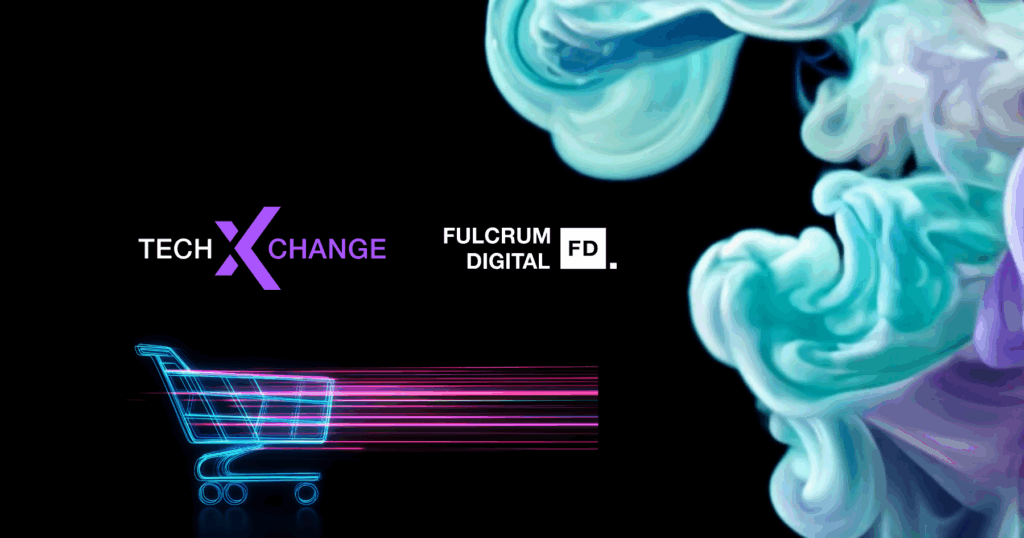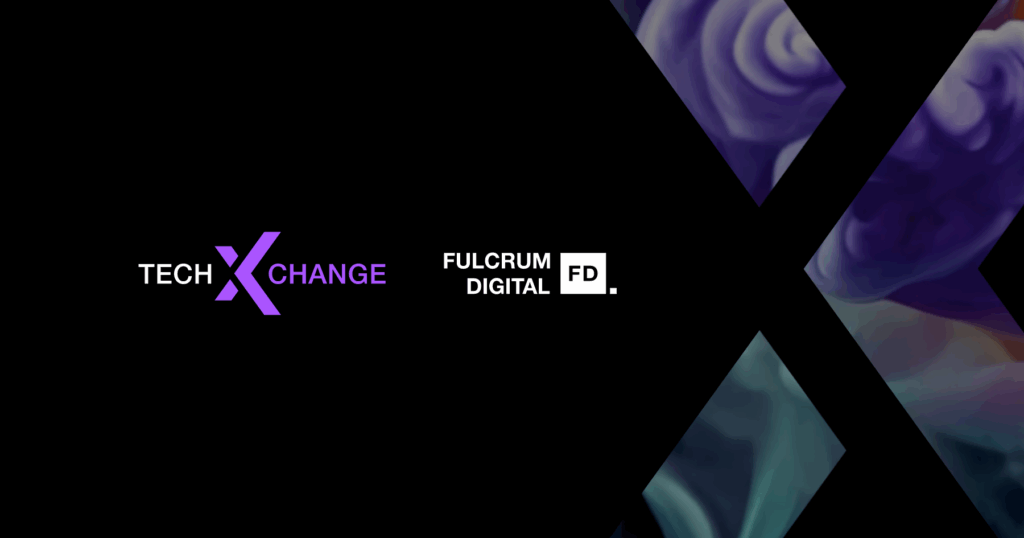A closer look at how agentic AI is redefining what loyalty feels like after the sale.
Let’s be honest: most loyalty programs today are just elaborate discount engines. You sign up, you earn some points, maybe you get a birthday email with 10% off.
It’s polite. Predictable. And completely forgettable.
But loyalty, the kind that makes a customer come back, tell their friends, and forgive the occasional misstep, doesn’t come from rewards. It comes from relevance.
And relevance doesn’t happen with static rules and batch emails. It happens when your brand shows up at the right moment, in the right context, without being asked.
This is the moment Agentic AI enters the picture. Not as another dashboard widget, but as a fleet of intelligent micro-agents working quietly behind the scenes. They do not just automate; they anticipate. They do not just personalize; they remember.
And when the post-purchase journey becomes this kind of proactive, emotionally aware experience? That’s when loyalty stops being a points program and starts being a relationship.
The Loyalty Gap: Why Traditional Programs Are Falling Short
While loyalty programs have long been a staple in customer retention strategies, many are no longer meeting the evolving expectations of today’s consumers. Here’s a closer look at the challenges:
- Over-Saturation and Under-Engagement: The average U.S. consumer is enrolled in approximately 14.8 loyalty programs but actively engages with only 6.7 of them. This discrepancy indicates that many programs fail to offer compelling value or differentiation.
- Transactional Focus Over Emotional Connection: A significant 97% of loyalty programs rely heavily on transactional rewards, such as discounts or points. This approach often builds loyalty to the reward itself rather than fostering a genuine connection to the brand.
- Stagnant Engagement Metrics: Despite widespread adoption, engagement in loyalty programs has declined. A Boston Consulting Group study noted a 10% drop in consumer engagement and a 20% decrease in loyalty over a two-year period, highlighting the need for program evolution.
- Lack of Personalization: Only 44% of consumers feel that the offers they receive from loyalty programs are relevant to their personal preferences, underscoring a gap in personalized customer experiences.
- Ease of Switching Brands: Modern consumers are more willing to switch brands if they perceive better value or experiences elsewhere. In fact, 77% of consumers report retracting loyalty faster than they did three years ago.
These insights suggest that traditional loyalty programs, with their one-size-fits-all approach and transactional incentives, may no longer suffice in building lasting customer relationships. To remain effective, loyalty strategies must evolve to offer personalized, meaningful, and emotionally resonant experiences.
What Makes Agentic AI Different?
Unlike conventional AI tools that follow workflows or execute predefined tasks, Agentic AI agents are autonomous by design. They interpret customer signals, make contextual decisions, and initiate actions independently while still aligning with brand values and goals. This enables dynamic, personalized experiences that evolve with each customer and not just react to them.
This visual breaks down four ways Agentic AI turns ordinary moments into loyalty-building opportunities:

The shift isn’t just technical, it’s experiential. When customers feel seen, supported, and remembered, without needing to ask, they’re far more likely to stay loyal over time.
In fact, Cisco predicts that by 2028, 68% of customer service and support interactions will be handled by agentic AI, driven by its ability to deliver fast, personalized, and emotionally resonant responses at scale.
Real-World Applications: How Leading Brands Are Leveraging Agentic AI
While the concept of Agentic AI may still feel new to many, leading consumer brands are already deploying it to strengthen the customer relationship where it matters most. These aren’t just incremental improvements to loyalty programs. They’re deeper, more contextual engagements that treat every customer interaction as an opportunity to build trust.
- eBay: Reimagining the Shopping Journey with Conversational AI
eBay has introduced a conversational shopping agent designed to accompany customers through their entire buying experience. AI helps users discover products based on their intent and preferences, using natural language interactions to refine recommendations in real time. This agent doesn’t just assist with product discovery; it adapts with each interaction, creating a sense of continuity that feels more like a relationship than a transaction. The result: improved engagement, increased satisfaction, and a more personalized ecommerce experience.
- Tesco: Deepening Loyalty Through Predictive Personalization
Tesco has integrated AI into its Clubcard loyalty program to move beyond static offers and toward predictive personalization. The system analyzes individual shopping habits and contextual data, such as time of day, location, and seasonal trends, to deliver more meaningful suggestions. Whether it’s recommending sustainable swaps or surfacing forgotten favorites, the experience feels less like marketing and more like memory. Tesco’s move reflects a larger shift toward loyalty powered by relevance rather than rewards.
- No7: Boosting Engagement with an AI Skincare Companion
Beauty brand No7 introduced an AI-powered skincare advisor that provides customers with personalized product suggestions based on their skin type, concerns, and even local climate conditions. The result isn’t just better product matches; it’s a more confident, guided experience that feels individually tailored. The impact speaks for itself: a 3.6x increase in conversion rates and a 48% rise in average order value. For No7, Agentic AI isn’t just a backend feature. It’s a loyalty driver, built right into the customer journey.
From Engagement to ROI: Why This Shift Matters
For all its intelligence and elegance, Agentic AI still needs to answer to the bottom line. And it does.
Early adopters across the consumer products and services space are already seeing measurable returns, not just in engagement metrics, but in significant business outcomes.
We’re talking:

These aren’t edge-case results. They reflect a shift that’s already underway: from loyalty programs as static reward systems to loyalty as an active, intelligent function embedded in the post-purchase journey.
And that journey is no longer owned by CRM teams or CX dashboards.
It’s increasingly being orchestrated by autonomous, brand-aligned agents who know when to act, what to say, and how to keep customers close, without ever making it feel like effort.
If your loyalty strategy still relies on rule-based automations and retroactive offers, it might be time to ask a different question: not just what keeps customers coming back, but who.
Because the most valuable relationship your brand builds in the next 12 months might not start with a campaign. It might start with an AI agent.
Explore what FD Ryze can do for your post-purchase experience and see how our autonomous agents are helping brands turn loyalty into a living, intelligent system.





